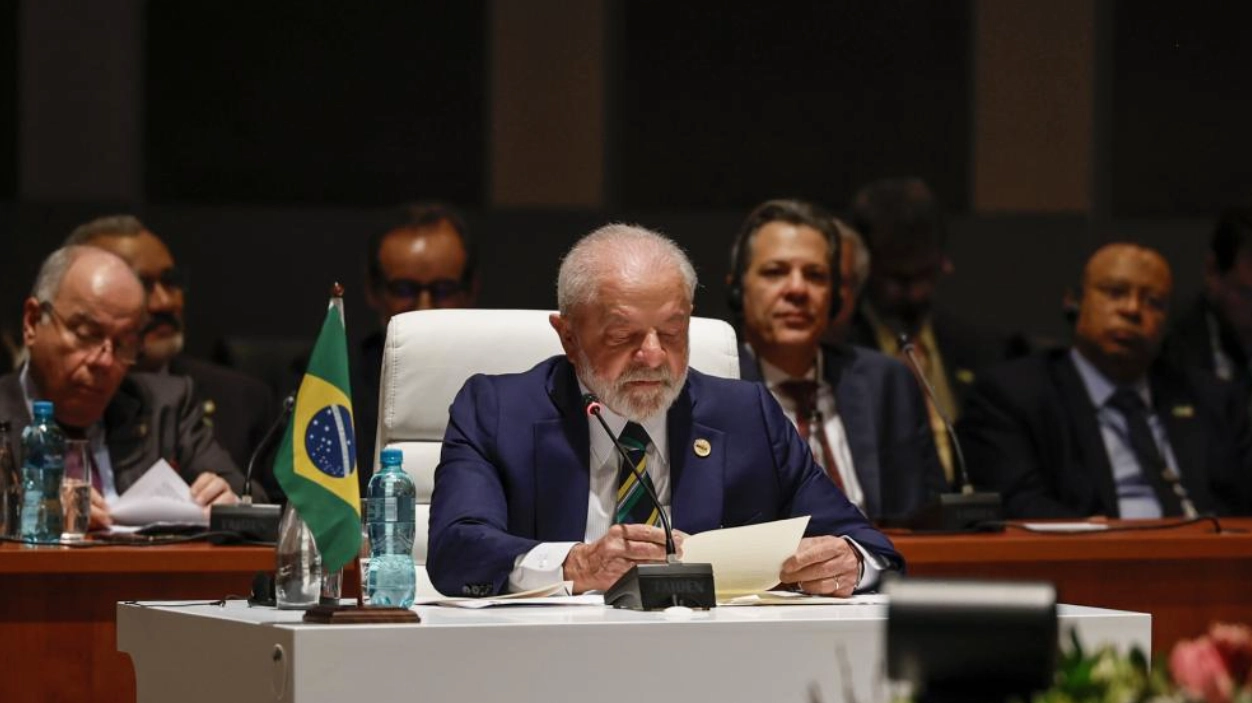Since Luiz Inácio Lula da Silva won the 2022 elections, Brazil has sought to recover from an international image eroded by then-President Jair Bolsonaro’s agenda. In addition to historical agendas such as Latin American integration and the principle of non-intervention, President Lula’s current term presents different responses to a changed world that was no longer understood during his first two terms (2003-2011).
As the first year of his new term approaches, Lula builds his foreign policy guidelines together with key figures from his previous administrations: Celso Amorim and Mauro Vieira, respectively special advisor to the President of the Republic and Minister of Foreign Affairs. In this framework, it is necessary to understand the relationship of his government with the transformation of the multilateral system guided by the expansion of the BRICS, the relations with the G20 and the G77, as well as his first participation in this mandate during the United Nations General Assembly.
The expansion of the BRICS
Firstly, as Vieira mentioned, consensus should be used as the main rule within the bloc. However, it should not be forgotten that countries with greater economic and political potential sometimes take precedence in the decision-making process. The dissolution of regional power, as in the case of Brazil within the BRICS, can generate a political cost for the country’s interests at the multilateral level. This can be seen in relations with Mercosur countries and its dialogue with the European Union, although Brazil in particular is committed to finalizing the agreement.
An intra-bloc regional dispute does not mean that consensus mechanisms are failing, but rather that the process of power dissolution is a reality. The search for consensus will depend on political will and aspects of realpolitik and also on Brazil’s valuable soft power to resolve possible disputes. The same logic can be applied to South Africa-Egypt-Ethiopia, Iran-Saudi Arabia-Arab Emirates and India-China relations, provided that due proportions are kept.
There are also very positive economic and political aspects. By 2024, the bloc will account for approximately 46% of the population and 36% of GDP, opposing the interests of the G7 and demonstrating that a new shape is emerging in an increasingly multipolar world.
Another point about the BRICS that deserves to be highlighted is their focus on regional balance, their commitment to reforms of the global governance system, and trade through local currencies. Regional balance within the BRICS is, however, a reflection of the geopolitical and geoeconomical logic of the regions covered.
Relations with the G20
In the case of the G20, Brazilian diplomacy will seek to focus on areas in which Brazil leads or plays a key role: energy transition, social inclusion, and sustainable development. With the enlargement of BRICS, there will be a total of seven countries members of the two blocs, thus increasing the correlation of forces, where there will be greater scope for dealing with international issues. The G77 demonstrates that Brazil also seeks to maintain the historical dialogue with the nations known at the time as non-aligned, with an economic approach that seeks the common development of the 135 nations belonging to the bloc.
Understanding the diplomatic participation in the three groups demonstrates the multilateral nature of Brazilian diplomacy in dealing with geopolitical, commercial, and economic issues. Although priority was given to the BRICS during the first year of Lula’s government, it is understood that there was no abandonment of the historical agendas of the Workers’ Party, such as South-South cooperation, dialogue with global actors, and the construction of a multipolar order based on consensus.
Speech at the UN
Finally, Lula addressed the United Nations General Assembly for the first time since 2009. Along with nations such as India and Japan, Brazil has sought to reform the UN Security Council, the system’s most important body.
Understanding the UN as the main arena for international relations, Lula presented the main advances and ambitions of his foreign policy, such as the reform of the global governance system and Brazil’s leadership in the Global South.
In 2009, Lula focused his speech on three major problems plaguing the world at the time: the economic crisis, the lack of stable and democratic governance and climate change.
Today, the focus of the argument is on inequalities, both internal and external, which are directly responsible for the successive crises the world is going through. By reiterating the historical positions of Brazilian diplomacy, Lula raised and recovered diplomatic status and presented his leadership and alternatives to solve the dilemmas that international society has been facing.
Lula referred to the most varied conflicts in the world and reaffirmed Brazil’s commitment to peace and sustainable development. He reaffirmed that a restructuring of the system of world governance is necessary, as the existing order no longer represents the multilateral nature of international relations.
Lula represents today the most important leadership of the Global South. His position in the organizations presented here represents an analysis of the structure of foreign policy for the coming years and brings with it reflections of his past administrations, the interest in solving problems related to inequality and international conflicts, through formulas based on the historical positions of Brazilian diplomacy and the principles of non-intervention and the mediation process for the peaceful resolution of conflicts.
*Translated by Janaína Ruviaro da Silva from the original in Spanish.











